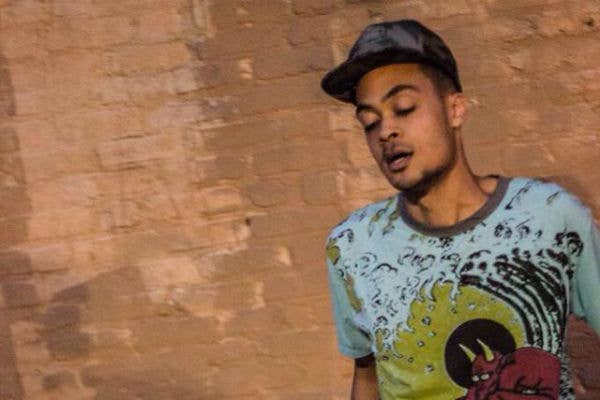1.
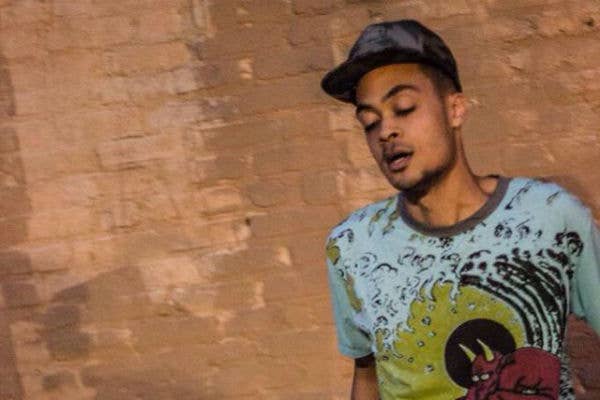
Image via Tedy Brewski
5 On It is a feature that looks at five of the best under-the-radar rap findings from the past week, highlighting new or recently discovered artists, or interesting obscurities.
3.
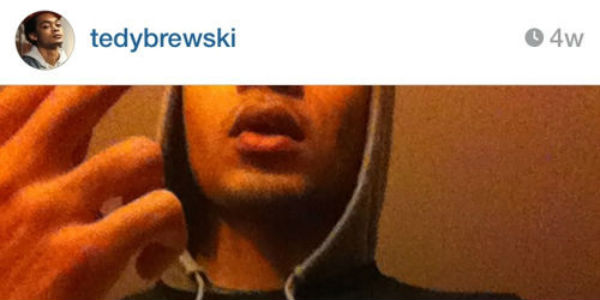
Image via Tedy Brewski
Tedy Brewski, rap chameleon
Few rappers in the year and a half of 5 On It‘s existence have proven as versatile and consistently unusual as Connecticut’s Tedy Brewski. Listening to any two of his songs back to back can feel like having your consciousness torn in half, held tenuously together by the quality of his rapping.
When we last heard from him, Brewski’s “Yung Kareem” and “I’m Serious” saw him whirling wildly through influential touchstones—Lil B, Chief Keef, Fetty Wap, Jay Z, Big L, and MF Doom, all with a singular flair that felt like homage in synthesis. Brewski’s style remains his own, even when his cadences and lyrics contain whispers of the past.
Strongest recent singles “Kolonopin” and “On My Own” continue Brewski’s dizzying, chameleonic trend. “Kolonopin” sounds like Eminem and Planet Asia (or, more specifically, Planet Asia channeling Slick Rick) filtered again through Keef’s melodic sensibilities, sharp, incisive rapping executed with Brewski’s particular charisma and cleverness. “On My Own” serves as a sort of macabre turn up, southern flows set against a dark piano.
7.

Image via Andy Koh
Aminé – “Le Danse”
As subgenres spread and gestate, it’s interesting to see not only what new directions they take, but how they incorporate other elements of their parent genres. It’s difficult to trace “future bounce” to any one source. The term and style (rapping mixed with house-inspired, dance-friendly hip-hop beats) gained legitimacy through GoldLink’s early singles and debut project The God Complex, with label and loose collective Soulection providing a producer-centric exploration of the sound that found flesh-and-blood form in Los Angeles events. While you can realistically argue that Azealia Banks’ 212 and the songs that constituted Broke With Expensive Taste set a progressive blueprint for what was to come, it feels like the stylistic boundaries of future bounce (or whatever you choose to call it, subgenre names are always a bit hollow and unfairly limiting) have been codified in 2014 and 2015.
Since GoldLink’s emergence in mid-2013, rappers like Vic Mensa (who surprisingly delivered perhaps future bounce’s brightest creative moment, “Down On My Luck”), IshDARR, Doja Cat, Marvel Alexander, and Waldo have explored the loosely fenced territory that comprises a sound still sorting itself out (is it purely party music? can it be something more serious? should it be something more serious?).
Portland, Oregon’s Aminé first caught my attention with his remix of a Kaytranada favorite, “At All.” His work also won the favor of the rising producer, leading Kaytranada to lend original production to Aminé’s upcoming project Calling Brio. Lead single “Le Danse” shows the fruits of their labors, a spin on future bounce that lays Kaytranada’s usual combination of inviting synths and vibrant bass over percussion that feels indebted to latin disco. As its name implies, “Le Danse” shines its light on movement, but its also an impressive display of Aminé’s nimble rapping.
10.
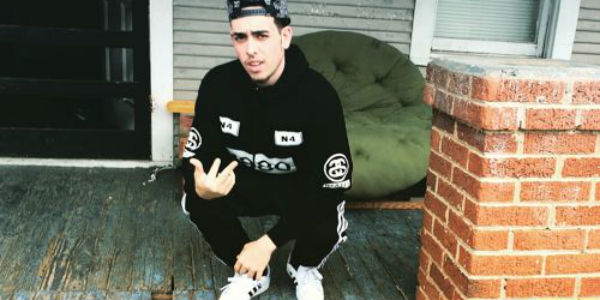
Image via WesBeBlanco
WesBeBlanco – “Johnny Cash”
From the school of Lil B choruses built on the “I look like/I think I’m (insert famous person’s name)” formula, Houston rapper WesBeBlanco’s “Johnny Cash” serves up an excellent tweak: “All black like I’m Johnny Cash/I was him in my past life.” Beyond that, it’s a skilled display of freely associative storytelling, agile rapping, and self-reflection.
As its namesake’s attire suggests, “Johnny Cash” is grim but never laborious, dark exploration of relationships, party culture, and daily struggles that feels fresh and requires repeat listens to fully comprehend.
13.
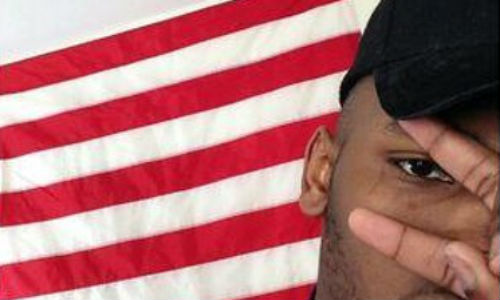
Image via Lonny X
Lonny X – FUBU
Connecticut’s Lonny X first jumped on my radar with his amusing stonerism and charmingly lo-fi songs. Some music is inviting because it’s immediate and visceral. Music like Lonny’s invites the listener because it owns up readily to its ambitions.
New album FUBU expands Lonny’s sonic palette, setting his casual, clever rapping against mellow production that moves closer to cloud rap territory than previous forays into a world that felt like a blend of MF Doom’s Special Herbs-style sonics and Tumblr-age aesthetics. It’s quirky, personal in its approach, and occasionally finds casually catchy territory.
Listen to penultimate song “Promise” for an extra dose of Tedy Brewski.
16.
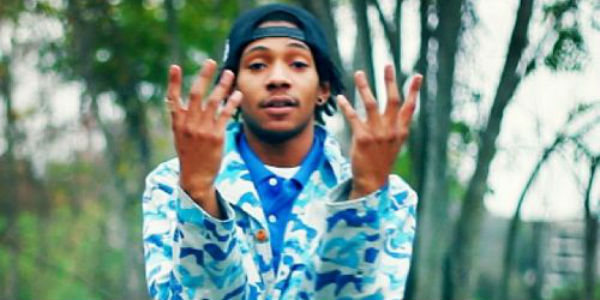
Image via Young Juve
Young Juve – “Do Yo Thang”
New Orleans has long been one of the U.S.’s stranger hip-hop towns. It produced arguably two of the most important, influential, and commercially viable labels in the history of the genre, No Limit and Cash Money. It’s rich in a wildly free, singular musical history, a city that exists, in many ways, in a state of constant performative celebration (an irony not lost in light of the 10 year anniversary of hurricane Katrina, and likely an element that contributes to the incredible resilience of New Orleans’ residents).
Its legacy lives largely in bounce, the riotous, party-oriented take on hip-hop that’s fast, often irreverent in its sample choice, and infectiously fun. Curiously, it’s a sound that has never moved much beyond the region, save for as a sort of secret transmission in some of Mannie Fresh’s popular productions (in particular Juvenile’s classic “Back That Azz Up”).
Yet, by all anecdotal accounts I’ve collected over the years, New Orleans is not a particularly great city for young, aspiring rappers. No real infrastructure, no support, no pipeline to the outside world—essentially the opposite of the region’s mecca, Atlanta.
Young Juve is the son of perhaps New Orleans’ second or third most recognizable rapper (and unquestionably one of its greatest), Juvenile. It comes, then, as no true surprise that New Orleans radio station Q 93.3 has begun to pick up Young Juve’s new single “Do Yo Thang”—in a city with little in the way of a supportive ecosystem, a little nepotism might go a long way. Don’t hold that against Juve; “Do Yo Thang” (which cleverly flips a lyric from the Big Tymers’ “Get Your Roll On” for its hook) stands on its own merit, well-produced and sharply written. Young Juve sounds little like his father, but he also sounds like the sort of rapper who could break out of his city (perhaps because his sound is a bit more universal than indebted to New Orleans) and pop up on national radar with the right record.

